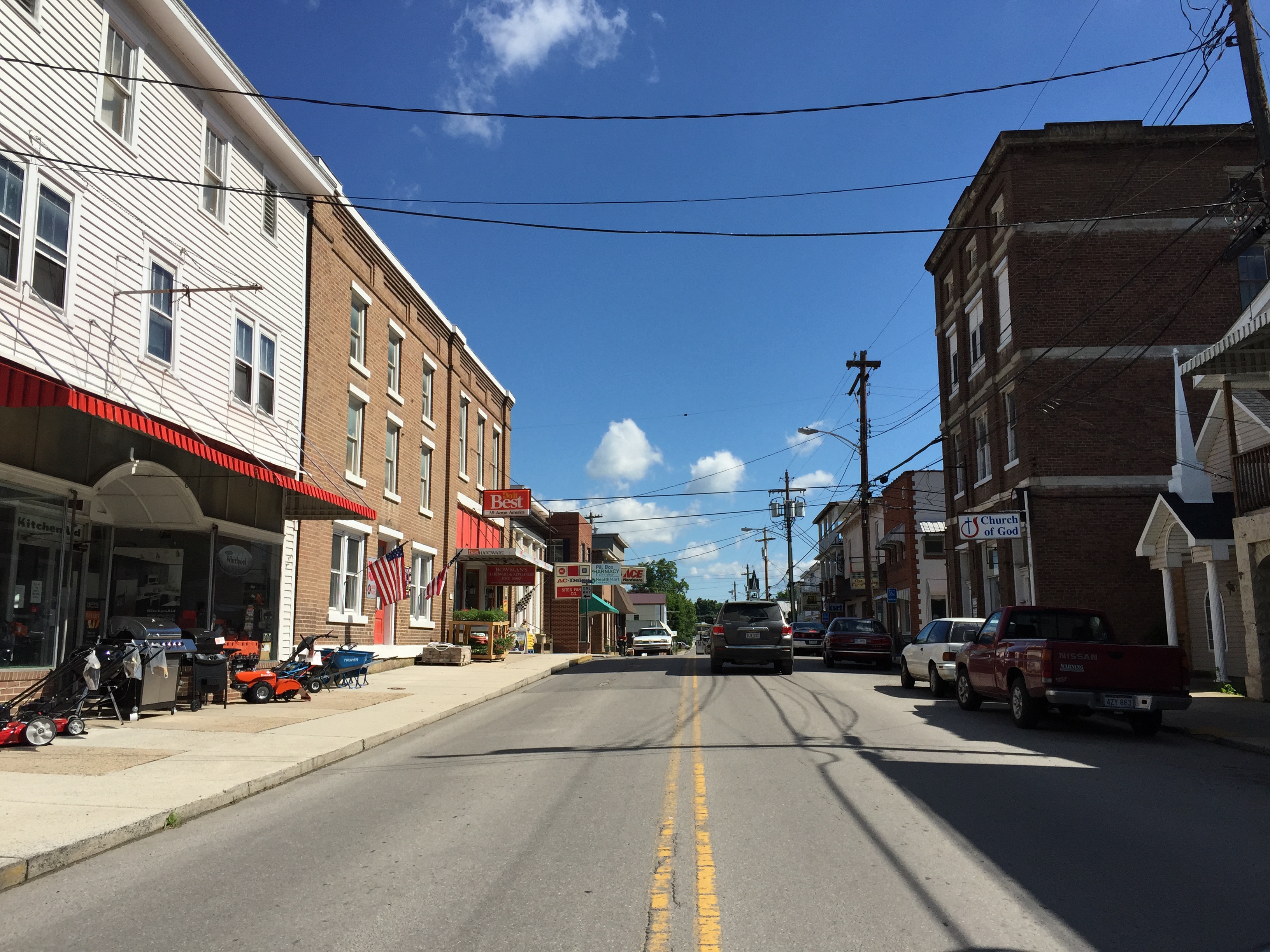This week brought heavy news for low-income internet users. As of November 21, 2017, the Trump administration’s FCC has shifted its allegiances away from net neutrality. Running counter to the Obama era’s affordable internet project Landline, the FCC hopes to gut subsidies for internet in low-income homes and allow companies like AT&T and Comcast to determine which sites users may access based on the amount they are able to pay. Regulations meant to protect the public interest will be torn down; bills, already expensive, are likely to increase.
For some, this is a scary new world, but in Tennessee, it’s the world we already live in.
In November 2016, I drove down highway 11 from Knoxville to meet with members of the Newport Utilities Board in Cocke County. They had just begun the process of becoming a distributor of internet service, treating it, for the first time in Cocke County, as a utility rather than a private enterprise. At the time, most service in the area was satellite, a delivery method that notoriously fails during inclement weather. When asked about the potential change this would have in community, everyone I spoke with first discussed the problems surrounding AT&T and other major telecommunication companies in the area. In the hollers, there’s often no providers available at all; where there is one, there is often a monopoly, with resulting exorbitant prices.
I asked to meet with members of NUB and the Cocke County economic partnership in order to understand their process and values, and understand where their work falls in the context of the greater policy landscape around broadband in Tennessee. NUB staff-person Carmen Lichty described the obstacles facing her workplace’s efforts toward greater distribution. We spoke at length about the past, present, and future of rural Cocke County. Especially, we spoke of broadband, that elusive thing that is taken so for granted by people in cities,what would it look like for Newport to become an internet service provider, and how it could happen.
John Knight, an IT department employee with NUB, said that “the state is really committed—so they say, we think they are—to helping distressed communities” in rural areas. Knight wouldn’t condemn Governor Bill Haslam or other public servants whose ties to private industry have deeply influenced their opinions on the broadband issue. The only criticism he was willing to levy was shaded in his hesitancy to promote NUB’s work, citing that the “dangerous” and dogmatic reliance on private ISPs in Tennessee made the work easiest to do with minimal fanfare.
Another public employee present at the interview, who worked with the Cocke County Partnership—a local economic development entity—added that there’s “no automation, no industry, without high-speed internet.” Without it, all their hopes for better jobs, stable tax income, and improved infrastructure for the county would be dashed.
“We want it tomorrow—no, yesterday,” Lichty said, pointing her finger emphatically at the ceiling. All in the room nodded, first uncertainly, then firmly. This small county by the mountains was prepared to make history, and they had done their research. They know the road ahead is going to be rough—mostly because of state entities who claim to support them.
Tennessee has for some time been home to a curious mix of opinions on rural broadband access. On one hand, the state’s electric infrastructure—lines and co-ops built by the Tennessee Valley Authority—seem to indicate that quick, sweeping change in utility access is possible. In cities like Chattanooga, small electric utilities have taken on broadband distribution—and succeeded in lowering costs, bringing prosperity to their municipalities, and remedying some major inequalities and indicators of poverty. But on the other hand, as businesses are attracted to the area by high internet speeds, newfound wealth does not spread outward to adjacent, poorer parts of the state. Instead, it is bounded within municipal borders, thanks to a lawsuit with the state of Tennessee’s name on it. So despite apparent prosperity, 34 percent of the state’s households still don’t have internet access today.
Still, state legislature speaks highly of rural broadband as a development goal. Whatever the confluence of events that brought the broadband issue to the forefront now, state development initiatives here are influenced by a hectic mix of groups at every level; from the highest auspices of the governor to the clamoring of lobbyists to citizens groups and county governments.
The Tennessee legislature has long designated broadband infrastructure as a top priority. Businesses, community members, and county governments all agree that without reliable access to the internet, rural communities are falling further and further behind, their residents either underemployed, engaging in illegal work, or leaving town. But the hurdles that this seemingly simple solution to these systemic issues faces in order to pass are inherently more complex.
Economic development has been a thorn in Tennessee’s side since before the TVA era. As a state with over one-third of its counties in the Appalachian region, Tennessee takes certain economic development cues from the Appalachian Regional Commission, which designates counties on a spectrum from “distressed” to “attainment.”
ARC-designated distress is a poor marker for any Appalachian state, indicating unemployment and impoverishment, and carrying with it the general stink of undesirability. Tennessee’s state development agencies appear determined to fix these measures through a variety of regional development initiatives, including broadband distribution. The public relations disaster of having “distressed” counties puts state agencies are in the unenviable position of both defending their actions—saying Tennessee is more prosperous than ever before—and at the same time understanding why 21 of its counties are in the nation’s bottom 10 percent economically.
The Federal Communications Commission in the Obama era hoped to encourage public utilities to provide connectivity to their municipalities and beyond, as part of a larger goal throughout the administration to expand rural access.
But when Chattanooga tried to do this very thing, the state of Tennessee sued. The 2016 case of TN v. FCC demonstrated the difficulty of translating that support to the state level. In 2015, the FCC issued a statement that Chattanooga’s Google Fiber infrastructure—a public internet system run through Electric Power Board (EPB), its municipal public utility—could expand beyond Chattanooga’s borders to serve rural areas. But Tennessee lawmakers and telecom companies claimed that the FCC had no right to tell them how to expand services, advocating what they termed a “Tennessee solution” for a “Tennessee problem.”
The bid to preempt expansion of broadband was lost. In 2017 Tennessee, no utility district can expand broadband distribution beyond its borders.
The state’s only action on the issue up until 2016 had been the Tennessee eStrategy Report, designed by the Tennessee State Economic Development Office. The study outlines access issues, interprets survey data, and proposes some solutions to the problem. It was conducted by a group of executive appointees, and not elected public servants.
Randy Boyd, the study’s convener, is a multimillionaire, known for his opportunistic land purchasing for the Smokies baseball stadium, and his upcoming run for governorship. The report’s simplification of the complexities of rural broadband access (affordability, shop service, etc) to simple provider availability is unfortunately telling. Ironically, because the survey was distributed online rather than through the mail, no one without internet service could easily fill it out. This signature shortsightedness defined the project, and most of its proposed solutions have not been realized.
Some communities, many smaller and poorer than Chattanooga, are coming up with solutions on their own. Bypassing state restrictions as quietly and efficiently as they can, certain county-level utilities are installing municipal projects.
In Cocke County, a cash-poor rural county next to the Smoky Mountains, the Newport Utility Board did what the well-funded Rural Task Force failed to do; they physically mailed an internet access survey to their entire service area.
Small utilities like NUB distribute broadband internet in multiple cities and towns in Tennessee, such as Pulaski, Morristown, Erwin, Jackson. Despite their success, new ventures like these are forced to keep public broadband projects low-key, perhaps fearing the same government restrictions and telecommunications lawsuits that beset Chattanooga. They are still limited by the TN v. FCC ruling, and can only install internet wherever they have a meter.
The laws that prohibit cooperatives from distributing internet are what have led NUB to believe they should fill the gap. Municipal utilities can still do it, like in Chattanooga; however, like in Chattanooga, they may only distribute service in their service district. Even if NUB has the technical and financial capability to distribute beyond the parts of Cocke County that they serve, thanks to TN v. FCC, they are legally prevented from doing so.
Nonetheless, they are determined to do what they can. NUB recognizes that there is a difference between availability and access, and between having internet and having affordable, reliable internet.
“You realize how dependent you are when you don’t have access,” NUB staff-person Carmen Lichty said, to clarify her position—she, like many others in her area, had access to service; trouble was, access still meant glitchy, expensive, and unreliable.
Utility-led distribution is democratic, says John Knight, a staff member at Newport Utilities Board, because “our customers are owners.” The project has the potential to benefit other areas, should laws not get in the way: they could sell excess service to a utility in adjacent Jefferson County. All shook their heads as they described how EPB, in Chattanooga, could technically provide internet to Georgia, but is prohibited. Until laws are changed, they cannot sell to a cooperative.
As of 2017, the Rural Broadband Act undid some of the damage done in Chattanooga, but by no means all of it. Once again, executives in Nashville made strides towards greater broadband access, only to earmark the Act’s grant program for private hands only. (See this one-pager for a full description of the Broadband Act.). Once again, larger telecoms will dominate broadband distribution, and in poor areas with fewer financial returns, they simply may not go. The Act encourages digital literacy in the public sector through libraries and schools, above households.
Chattanooga and Jackson, Morristown and Erwin, still remain isolated pockets of affordable broadband, with the financial and logistical ability to expand, stopped by legal barriers from improving the lives of rural Tennesseans.
Katie Myers (@stopitkatie) is a writer, community organizer, and arts educator residing in Knoxville, Tennessee. She is currently working with a grassroots organization, Sustainable and Equitable Agricultural Development (SEAD) to deliver small-scale broadband infrastructure to surrounding counties.



